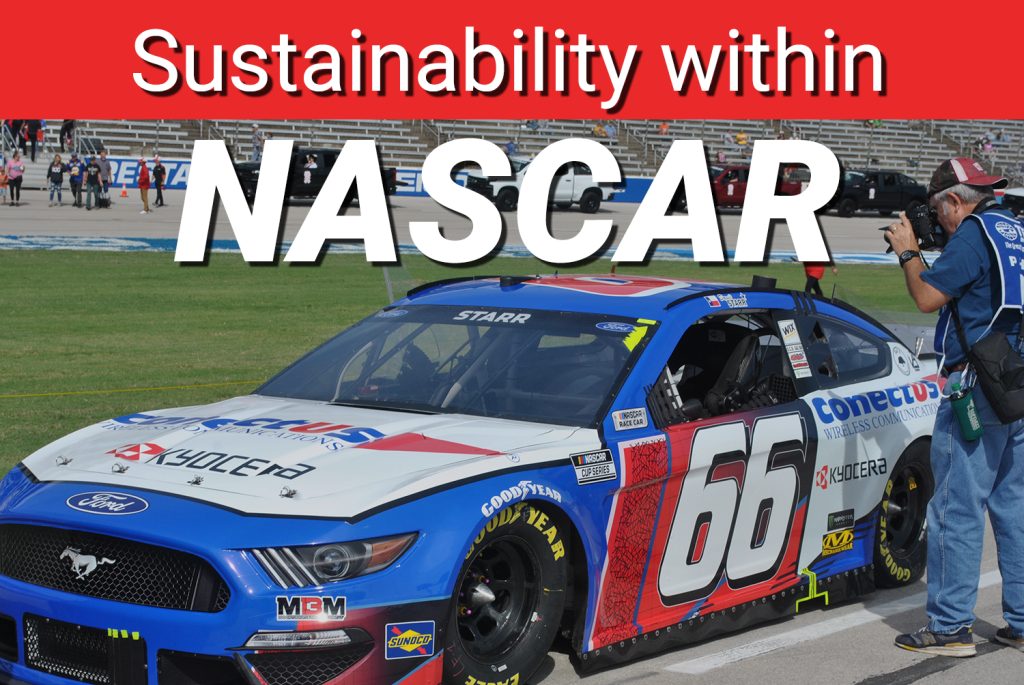Recently, I was both surprised and pleased to discover that NASCAR takes sustainability very seriously. Believe it or not, NASCAR has been working with key stakeholders to promote sustainability since 2008. Today, the organization is working with more than 15 partners, all deeply dedicated to sustainability, to achieve specific goals and objectives across the whole organization. But what does it mean to be sustainable? And with sustainability looking different from industry to industry, how does NASCAR measure success?
The definition of sustainability is the ability to avoid the depletion of resources in order to maintain an ecological balance. That is, to offset possible impacts on the natural environment. NASCAR’s stated objective is to be as environmentally conscious as possible, while still providing the exciting experiences that NASCAR’s fans know and love.
One of the ways that NASCAR has implemented sustainability is through its food and concessions programs. There is an industry-wide recycling program that aids and assists in food diversion. Through Sustainable America, an organization whose initiative is to make the nation’s food and fuel systems more efficient and resilient, NASCAR conducted a pilot program to reduce food waste in two ways. Prepared foods that would otherwise have gone to waste were instead redirected to Good Samaritan Ministries. Other food scraps were sent to be composted instead of to landfills. In 2015, when this program was started, a total of 5.4 tons of food went to compost and more than 1,000 meals were donated back to the community. Another example is that since 2008, around 25 million bottles and cans sold at NASCAR events have been recycled.
Another way different race tracks and NASCAR teams have implemented sustainability efforts is by using solar power as an energy source. Several race tracks, including Daytona International Speedway, Indianapolis Motor Speedway, Michigan International Speedway, Pocono Raceway, and Sonoma Raceway, are now using solar-powered energy to reduce their carbon footprints. In 2010, Pocono Raceway introduced the ‘3MW Pocono Solar Project’ which enabled the location to be 100 percent powered by solar power. In addition to this, Ponoco has adopted a tree planting campaign in association with the Arbor Day Foundation to aid in countering deforestation.
NASCAR has also partnered with Sunoco to launch a long-term biofuels initiative throughout their three touring series. Sunoco Green E15 is a 15 percent ethanol blend biofuel that reduces greenhouse gas emissions by up to 20% without the cars losing any horsepower. 200,000 gallons of oil are recycled across NASCAR’s three touring series annually. This partnership with Sunoco has been proven safe and efficient, running more than 10 million competitive miles throughout the ongoing touring series.
Yes folks! NASCAR is being very proactive in reducing its environmental impact while still working year-round to provide the thrilling experiences that we all love. With its biodiversity initiatives, waste diversion, renewable energy programs, and anti-deforestation efforts, NASCAR is demonstrating its 21st-century, cutting-edge principles.
Are you interested in selling Verizon Wireless services? Call us at (855) SELL-VZW or fill out the form below. We look forward to talking to you soon!



